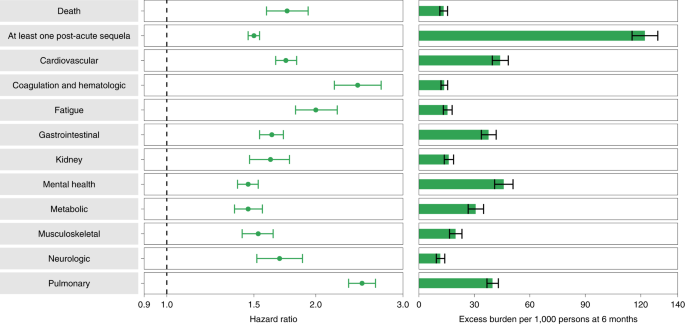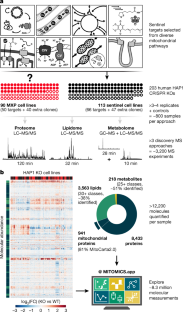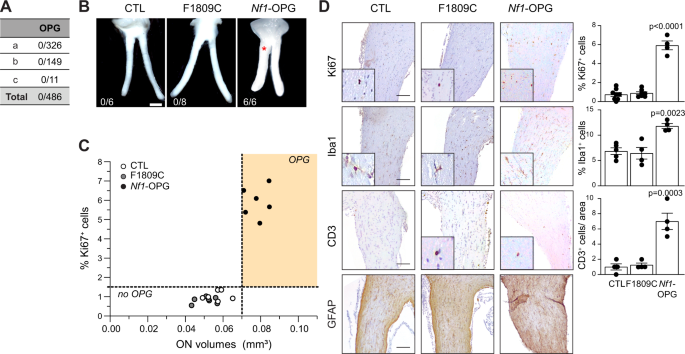ワクチン未接種の方がリスクは高いが、ウイルスに対する手段を増やす必要性を指摘する研究結果 While risks higher for the unvaccinated, study points to need for more tools against the virus
2022-05-25 ワシントン大学セントルイス
1300万人以上の退役軍人を対象としたこの研究では、COVID-19の原因となるウイルスに対するワクチン接種により、ウイルスに感染していない患者と比較して、死亡リスクが34%、COVIDが長くなるリスクが15%減少することも明らかにされました。しかし、ワクチンは、long COVIDの最も心配な症状である肺障害と血液凝固障害の予防に最も有効であることが示され、ワクチン接種者ではそれぞれ約49%と56%減少しました。
<関連情報>
- https://source.wustl.edu/2022/05/long-covid-poses-risks-to-vaccinated-people-too/
- https://www.nature.com/articles/s41591-022-01840-0
SARS-CoV-2画期的感染後のロングCOVIDについて Long COVID after breakthrough SARS-CoV-2 infection
Ziyad Al-Aly,Benjamin Bowe &Yan Xie
Nature Medicine Published:25 May 2022
DOI:https://doi.org/10.1038/s41591-022-01840-0

Abstract
The post-acute sequelae of severe acute respiratory syndrome coronavirus 2 (SARS-CoV-2) infection—also referred to as Long COVID—have been described, but whether breakthrough SARS-CoV-2 infection (BTI) in vaccinated people results in post-acute sequelae is not clear. In this study, we used the US Department of Veterans Affairs national healthcare databases to build a cohort of 33,940 individuals with BTI and several controls of people without evidence of SARS-CoV-2 infection, including contemporary (n = 4,983,491), historical (n = 5,785,273) and vaccinated (n = 2,566,369) controls. At 6 months after infection, we show that, beyond the first 30 days of illness, compared to contemporary controls, people with BTI exhibited a higher risk of death (hazard ratio (HR) = 1.75, 95% confidence interval (CI): 1.59, 1.93) and incident post-acute sequelae (HR = 1.50, 95% CI: 1.46, 1.54), including cardiovascular, coagulation and hematologic, gastrointestinal, kidney, mental health, metabolic, musculoskeletal and neurologic disorders. The results were consistent in comparisons versus the historical and vaccinated controls. Compared to people with SARS-CoV-2 infection who were not previously vaccinated (n = 113,474), people with BTI exhibited lower risks of death (HR = 0.66, 95% CI: 0.58, 0.74) and incident post-acute sequelae (HR = 0.85, 95% CI: 0.82, 0.89). Altogether, the findings suggest that vaccination before infection confers only partial protection in the post-acute phase of the disease; hence, reliance on it as a sole mitigation strategy may not optimally reduce long-term health consequences of SARS-CoV-2 infection. The findings emphasize the need for continued optimization of strategies for primary prevention of BTI and will guide development of post-acute care pathways for people with BTI.

